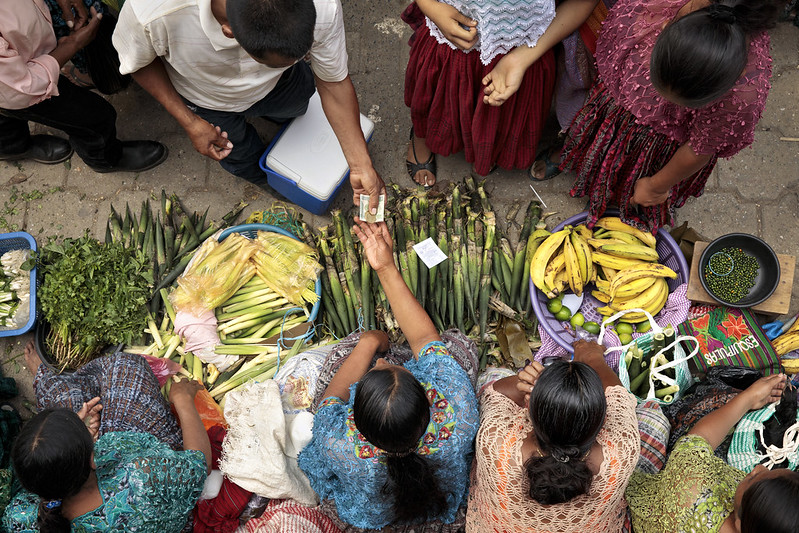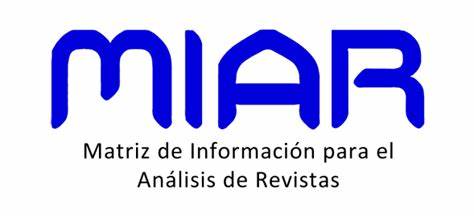Perspectiva agroecológica en el Antropoceno
DOI:
https://doi.org/10.54502/msuceva.v1n1a16Palabras clave:
Agroecología, Covid-19, Desarrollo sostenible, Resiliencia, Retos globalesResumen
El objetivo de esta reflexión es mostrar cómo se puede utilizar la agroecología en el desarrollo de un nuevo sistema agrícola post-COVID-19 como alternativa de desarrollo sostenible, revitalizando la agricultura campesina creando sistemas alternativos de producción animal y potencializando la agricultura urbana. Un sistema agrícola basado en la agroecología, es capaz de minimizar las futuras interrupciones generalizadas del suministro de alimentos debido a las pandemias y el cambio climático al mejorar los vínculos entre la producción de alimentos a pequeña escala, el consumo local y proporcionar pautas para la reconstrucción de un sistema agrícola posterior a la COVID-19. La agroecología es una estrategia que se centra en lograr la autonomía y la resiliencia, que puede transformar rápidamente las formas en que los pequeños agricultores producen y consumen alimentos al mismo tiempo que abordan los desafíos globales, incluido el cambio climático, la pérdida de biodiversidad, la inseguridad alimentaria, la pobreza y el deterioro de la salud.
Descargas
Métricas
Citas
Bezner Kerr R, Madsen S, Stüber M, Liebert J, Enloe S, Borghino N, et al. Can agroecology improve food security and nutrition? A review. Global Food Security 2021;29:100540. https://doi.org/10.1016/J.GFS.2021.100540.
Giraldo OF, Rosset PM. Agroecology as a territory in dispute: between institutionality and social movements. The Journal of Peasant Studies 2018;45. https://doi.org/10.1080/03066150.2017.1353496.
Altieri MA, Nicholls CI. Agroecology: challenges and opportunities for farming in the Anthropocene. International Journal of Agriculture and Natural Resources 2020;47. https://doi.org/10.7764/ijanr.v47i3.2281.
Monjane B. Agroecology: science and politics. The Journal of Peasant Studies 2019;46:1106–9. https://doi.org/10.1080/03066150.2019.1615184.
Byerlee D, Fanzo J. The SDG of zero hunger 75 years on: Turning full circle on agriculture and nutrition. Global Food Security 2019;21:52–9. https://doi.org/10.1016/J.GFS.2019.06.002.
Food and Agriculture Organization of the United Nations-FAO, Center for Development Research University of Bonn. Investment costs and policy action opportunities for reaching a world without hunger (SDG 2) . Bonn, Germany: 2020. https://doi.org/10.4060/cb1497en
Blesh J, Hoey L, Jones AD, Friedmann H, Perfecto I. Development pathways toward “zero hunger.” World Development 2019;118:1–14. https://doi.org/10.1016/J.WORLDDEV.2019.02.004.
Clark TP. A Theory of Migration. Journal of Ethnic and Migration Studies 2018;83:702–4. https://doi.org/10.1111/ruso.12247.
Mbow C, Rosenzweig LC, Barioni TG, Benton M, Herrero M, Krishnapillai E, et al. Food Security. In: Shukla PR, Skea J, Calvo Buendia E, Masson-Delmotte HE, Pörtner DC, Roberts P, et al., editors. Climate Change and Land: an IPCC special report on climate change, desertification, land degradation, sustainable land management, food security, and greenhouse gas fluxes in terrestrial ecosystems. 1st ed., Intergovernmental Panel on Climate Change-IPCC; 2019, p. 439–520. https://www.ipcc.ch/srccl/
Aday S, Aday MS. Impact of COVID-19 on the food supply chain. Food Quality and Safety 2020;4:167–80. https://doi.org/10.1093/fqsafe/fyaa024.
Altieri MA, Nicholls CI. Agroecology and the reconstruction of a post-COVID-19 agriculture. The Journal of Peasant Studies 2020;47. https://doi.org/10.1080/03066150.2020.1782891.
Tittonell P, Fernandez M, el Mujtar VE, Preiss P v., Sarapura S, Laborda L, et al. Emerging responses to the COVID-19 crisis from family farming and the agroecology movement in Latin America – A rediscovery of food, farmers and collective action. Agricultural Systems 2021; 190:103098. https://doi.org/10.1016/J.AGSY.2021.103098.
Salazar L, Schling M, Palacios AC, Pazos N. Retos para la agricultura familiar en el contexto del COVID-19: Evidencia de productores en ALC 2020. https://doi.org/10.18235/0002453.
Altieri MA, Nicholls CI, Henao A, Lana MA. Agroecology and the design of climate change-resilient farming systems. Agronomy for Sustainable Development 2015;35:869–90. https://doi.org/10.1007/s13593-015-0285-2.
High Level Panel of Experts on Food Security and Nutrition-HLPE. Agroecological and other innovative approaches for sustainable agriculture and food systems that enhance food security and nutrition. A report by the High-Level Panel of Experts on Food Security and Nutrition of the Committee on World Food Security. Rome, Italy:
https://www.fao.org/3/ca5602en/ca5602en.pdf
Nicholls CI, Altieri MA. Pathways for the amplification of agroecology. Agroecology and Sustainable Food Systems 2018;42:1170–93. https://doi.org/10.1080/21683565.2018.1499578.
Argüello A. H. Agroecology: scientific and technological challenges for agriculture in the 21st century in Latin America. Agronomía Colombiana 2015;33. https://doi.org/10.15446/agron.colomb.v33n3.52416.
World Food Programme- WFP. WFP Global Response to COVID-19: September 2020. Rome, Italy: 2020. https://www.wfp.org/publications/wfp-global-response-covid-19-september-2020
Food and Agriculture Organization of the United Nations-FAO. Growing greener cities in Latin America and the Caribbean. A FAO report on urban and peri-urban agriculture in the region. Rome, Italy: 2014.
Martin-Moreau M, Ménascé D. Urban agriculture: another way to feed cities. Field Actions Science Reports 2019;20:1–126. https://journals.openedition.org/factsreports/5536
Drescher AW, Isendahl C, Cruz MC, Karg H, Menakanit A. Urban and Peri-Urban Agriculture in the Global South, 2021.https://doi.org/10.1007/978-3-030-67650-6_12.
Aman F, Masood S. How Nutrition can help to fight against COVID-19 Pandemic. Pakistan Journal of Medical Sciences 2020;36. https://doi.org/10.12669/pjms.36.COVID19-S4.2776.

Publicado
Cómo citar
Número
Sección
Licencia
Derechos de autor 2021 Magna Scientia UCEVA

Esta obra está bajo una licencia internacional Creative Commons Atribución-NoComercial-SinDerivadas 4.0.
Magna Scientia UCEVA proporciona un acceso abierto, libre y gratuito a su contenido, basado en el principio de que ofrecer al público un acceso libre a las investigaciones, ayuda a un mayor intercambio global del conocimiento. Lo cual, implica que los usuarios pueden leer, descargar, almacenar, imprimir, buscar, indexar y realizar enlaces a los textos completos de esta revista. Se permite distribuir los diversos artículos en las versiones post-print y oficial, sin previo permiso del autor o editor, considerando que el fin de este, no implica fines comerciales, ni la generación de obras derivadas; Solo se solicita la mención de la fuente así como la autoría. El titular del copyright será el o los autores que publiquen en Magna Scientia UCEVA.
Magna Scientia UCEVA está distribuida bajo los términos de la licencia https://creativecommons.org/licenses/by-nc-nd/4.0/deed.es




















